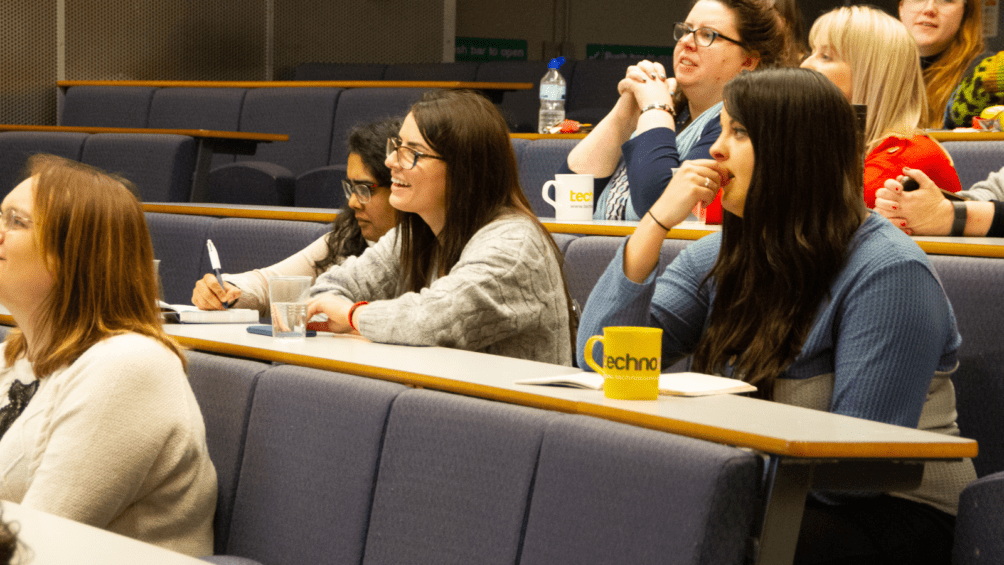The Digital Technology GCSE will be introduced to schools in Wales in September 2021. Here’s (nearly) everything you need to know about it…
The inspiration for the course was a 2018 report, launched by Qualification Wales with Technocamps at Swansea University’s Computational Foundry, “ICT Qualifications need Fundamental Reform, say Regulator”. The report concluded a need for a new digital based qualification. Swansea University’s Professor Tom Crick, as well as Technocamps Director, Professor Faron Moller, were academic leads in supporting this journey alongside Qualifications Wales.
The vision: “A broad-church digital-based qualification which provides learners with an insight into the use of and understanding of technology as part of their social and professional lives.”
We caught up with Technocamps’ Assistant Director, Stewart Powell, to find out more about the qualification and why it is so important for the future of education in Wales.

1. What does the new Digital Technology GCSE in Wales involve?
It is a 2-year GCSE course that is split into 3 units: A theoretical unit and two non-examined assessments (NEA). The first cohort of pupils across Wales will complete the qualification in Summer 2023.
Unit 1: Within this theoretical unit, pupils will learn all about the digital world, including its history and societal, political and economic impacts across the world. It also covers the technical limitations of digital technology and how this impacts on our daily lives.
Unit 2: This is a 45-hour NEA focused on creating a digital product. This is a substantial project where pupils are given a data set to interrogate and look for trends within it. For example, teachers may have already looked at the sample assessment which has some data around outdoor activities. Pupils will then be asked to plan and develop a digital product to support the trends that have been gathered, through a website; and game (using Game Maker) or animation (using Adobe Animate).
Unit 3: This unit involves developing marketing campaigns for particular audiences. Pupils will concentrate on a service or product and designing a social media plan as well as visuals to be shared on platforms that are used by their target audience.
2. How will the new Digital Technology GCSE differ from what is already on the curriculum?
In Wales, we encapsulate digital literacy as part of our Digital Competency Framework (DCF), which is a major feature within the new Curriculum for Wales 2022. A Computer Science GCSE and an ICT GCSE are currently being taught, which overlap with each other as well as Digital Technology. None of these subjects are distinct from each other, and they all include aspects of Digital Literacy too.

The current ICT GCSE focuses on the professional use of software to solve business based problems, whereas the Computer Science curriculum includes networks and understanding the fundamentals of technology and how they work. These skills are also important within the new Digital Technology GCSE.
As the ICT GCSE will no longer be available from September 2021, Digital Technology will be the answer for pupils who wish to develop their digital skills at a GCSE level. A wide range of stakeholders, including teachers, academics and government representatives, have agreed that the skills to be taught on the new course are essential to young people in Wales. It will cover security and networks as well as new opportunities such as developing social trends and creating digital products.
Contrastingly, in 2012, England’s then Secretary of State for Education, Michael Gove, announced that the ICT curriculum in England was not fit for purpose and would no longer be taught as a GCSE subject in schools. In England, pupils still cannot undertake a GCSE qualification, and there is no ‘effective’ alternative offered (although there are many level 2 qualifications available). There are also no plans in place for a relevant alternative. With the development and roll out of the new Digital Technology GCSE in Wales, we hope that this may influence other UK nations to consider the need for such a qualification at both GCSE and A-Level.
3. Why are these digital skills important to teach?
Technocamps has been working with Qualifications Wales and WJEC to ensure the skills taught on this course remain up-to-date as the industry is ever evolving. This is an exciting opportunity for pupils to learn how Digital Technology has affected our lives and the implications of monetising services like YouTube on modern careers. These examples contrast to the current ICT specification, which has many foundations within older technology.
The course will empower pupils to be able to use and develop digital skills to support their entrepreneurial ideas, such as setting up a baking business on Instagram or creating a YouTube channel about skateboarding. It will support them into business and be able to use adaptable skills across most sectors. As a result, the future generation of workers will have more freedom to specialise in what suits them.
Technocamps is also working with Swansea University to develop a Digital Technology Bachelor’s degree within the Computer Science Department. The course will be a natural pathway for those who undertake a GCSE and A-Level in Digital Technology and wish to enhance their skills. Modules will teach a wide area of technical skills including asset creation, plug-in development, marketing, and an understanding of machine learning and big data.
4. Can these skills be incorporated into other parts of the curriculum?
The new curriculum aims to expand on computational skills that are not currently taught in schools. Topics such as animation and video making are being incorporated into the rest of Key Stage 3 and this is a good opportunity to think more broadly and expand these skills to a wide range of subjects like languages and arts.
Technocamps is already supporting teachers to develop the KS3 scheme to incorporate things like social media campaigns, animations and games development, so pupils will have some knowledge prior to beginning the GCSE. For example, the entrepreneurial module within the Welsh Baccalaureate course and the processes that are followed are also relevant to the Digital Technology GCSE. Rather than subjects being siloed and taught separately, the current review of qualifications will result in a cross-curricular, innovative reform that will likely result in adaptable, progressive based exams. Many subjects overlap with one another, including Digital Technology, and this is being recognised.
5. How can Technocamps support with teaching the Digital Technology GSCE?
Technocamps has been a key partner with Qualifications Wales who we would like to thank for driving the change management around the development and implementation of the GCSE. We have been working with stakeholders including academics, qualification experts and teachers in Wales and the UK to ensure we are developing something meaningful and impactful.
To help with the roll out of the course itself, we have been looking closely at CPD opportunities — which have been hugely affected by the pandemic — and ways in which teachers can share best practice. Having adapted these for the virtual world, we are excited to offer two courses to get teachers enthused to deliver the GCSE. The first course starts in May 2021 and covers Unit 2 topics such as animation, game development and web development. The second (longer) course is set to begin in September 2021 and will run throughout the academic year, covering four units worth of material to support delivery of the whole Digital Technology GCSE qualification. This course is entirely free for teachers in Wales thanks to funding support from the Welsh Government.
